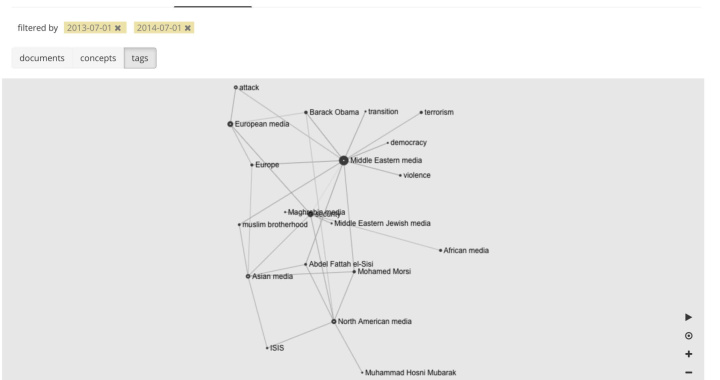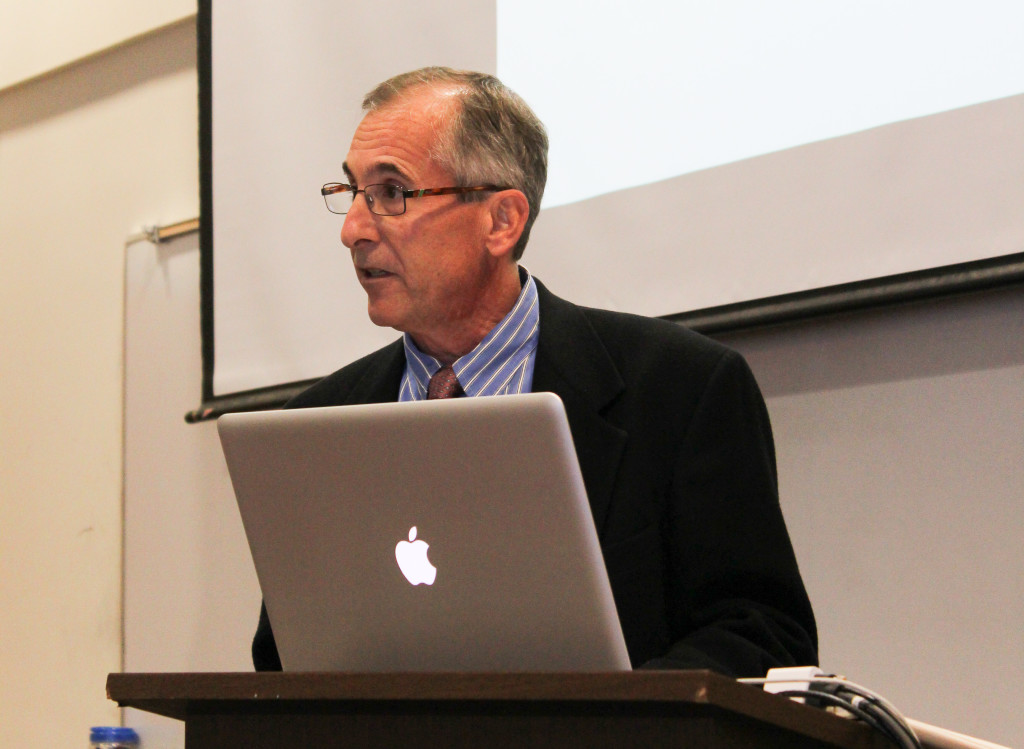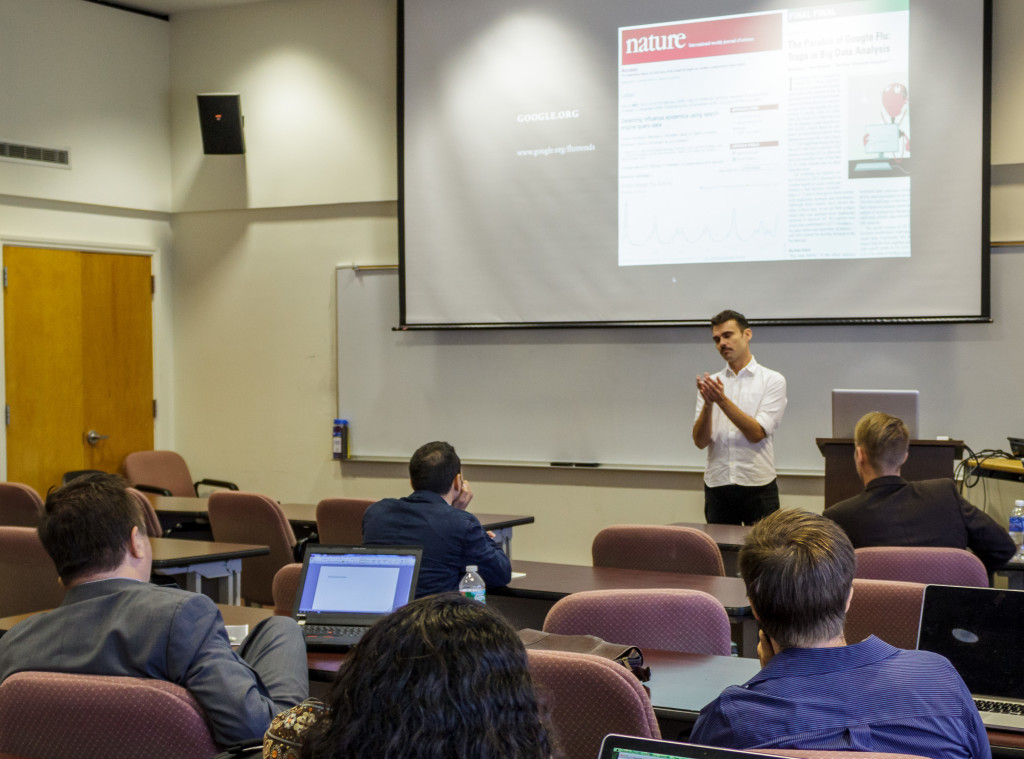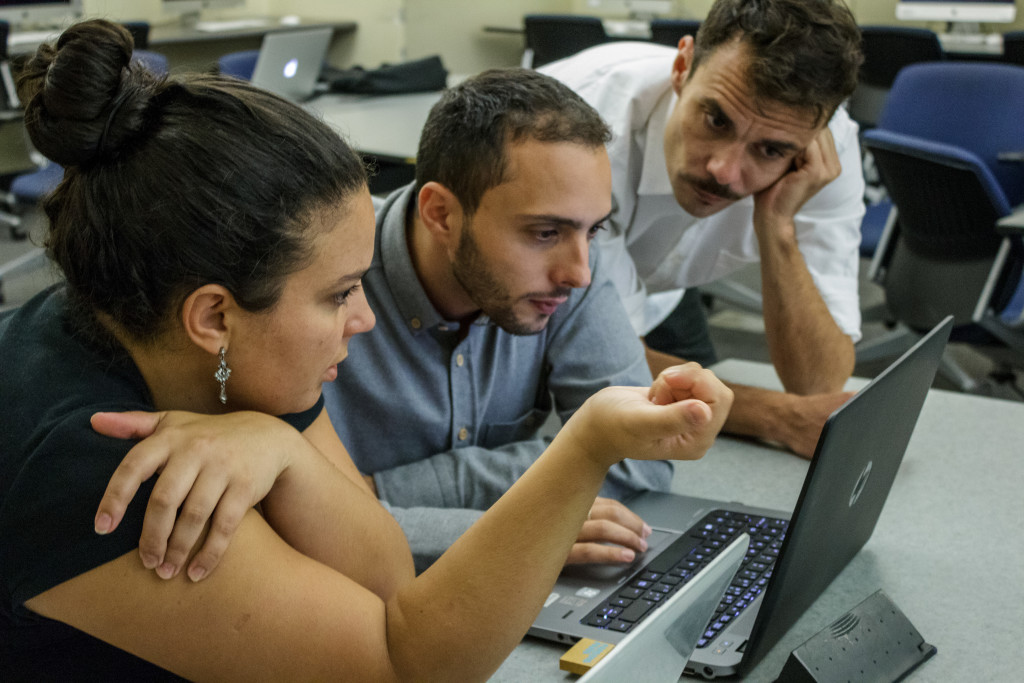In September 2015, faculty from the College of Humanities and Social Sciences in collaboration with those from College of Science and Mathematics hosted a conference and workshop on digital humanities. The event was organized by Arnaud Kurze, assistant professor of Justice Studies, and sponsored by research startup funds from Office of the Provost. The goal was to offer Montclair faculty a praxis-oriented experience to introduce new, innovative social science methods to capture complex social phenomenon in our data-driven world. To this end, Kurze invited two international research scholars for his project “Mapping Complexity in the Social Sciences: Big Data, Social Media and Data Visualization,” Donato Ricci, Research Assistant Professor of Digital Tools and Methods for Visualization at Sciences Po in Paris, France, and Daniele Guido, researcher at the Center for European Integration in Luxembourg.
Over two days, the event brought together international programmers, designers, developers and researchers from across multiple disciplines to explore innovative forms of studying and analyzing large, complex amounts of data and social media. The Dean of the College of Humanities and Social Sciences, Robert Friedman opened the event. He’s an advocate for digital humanities in an era when the humanities are at risk.
Dr. Robert Friedman, Dean of the College of Humanities and Social Sciences at Montclair State University.
“One of the goals I have for this college is to nurture these activities and projects,” he said, continuing that, “the digital humanities are a practical response to challenges that face the disciplines.” Following the Dean’s encouraging words, Kurze, who specializes in research on youth activism and social movements during the Arab Spring, outlined his research approach that combines ethnographic fieldwork and quantitative text analysis.
Describing his research to the participants of the workshop, he asked: “How does knowledge travel in the age of information technology? And does it actually foster change although we cannot necessarily see it at the political level?”
Dr. Donato Ricci, Research Assistant Professor of Digital Tools and Methods for Visualization at Sciences Po, France.
Afterwards, Ricci gave his capstone lecture, mapping key methodological issues when conducting research in the digital humanities. He is also the founder of a text-analysis software called Sven, an experimental tool to collect, organize and analyze text fragments from online and offline documents.
Ricci emphasized that “it is not important to build complex tools, technologies or standards, but instead we have to rethink how we are looking at our research object.”
In this context he referred to online tools like Google as compelling sources of information for research. Questions addressed during his talk included: What forms of visualization are most suited for particular data sets? How do we process big amounts of data effectively and present them coherently and compellingly? His presentation answered this these questions and more.
On day two, Daniele Guido elaborated on the study of networks, concepts and actors. The evolution of his research center and projects are deeply embedded in historical processes. He said, “Politicians in Luxembourg, a country at the heart of Europe, were proud to be in the center of the integration process. Thus, they started collecting documents. Luxembourg’s Prime Minister in the 1970s, Pierre Werner, for instance, collected over 10,000 documents.”
In this context, Guido introduced the web platform histoGraph, a tool that helps researchers explore large multimedia archives. This platform also enables users to find and identify the most relevant documents for research and helps discover connections between individuals based on the selected documents in the archive.
Daniele Guido, researcher at the Center for European Integration in Luxembourg explaining his software.
At the end of the morning session, Katherine Herbert and Jerry Alan Fails, both associate professors of Computer Science at Montclair State University, presented their research on big data and mobile phone applications to raise awareness about environmental issues. They described their personal cross-disciplinary research collaboration and stressed the need and the opportunities for establishing collaboration platforms that also include citizens, in addition to scientific cooperation. Fails raised the question: “How can you engage the citizen in the science?” Their collaboration platform is a first step into this direction.
Along with these lectures, participants had the opportunity to delve deeper during highly interactive and individualized afternoon sessions. Different projects and datasets were discussed in small groups, and the organizers provided valuable feedback participants to adequately and efficiently use new tools for research in the digital humanities. The interdisciplinary and innovative nature of this workshop served as a catalyst to foster future collaborative research projects not only on the Montclair campus, but also beyond.
Click here to download the conference agenda.
This post was first published on the Montclair State University website on October 31, 2015, available here.



